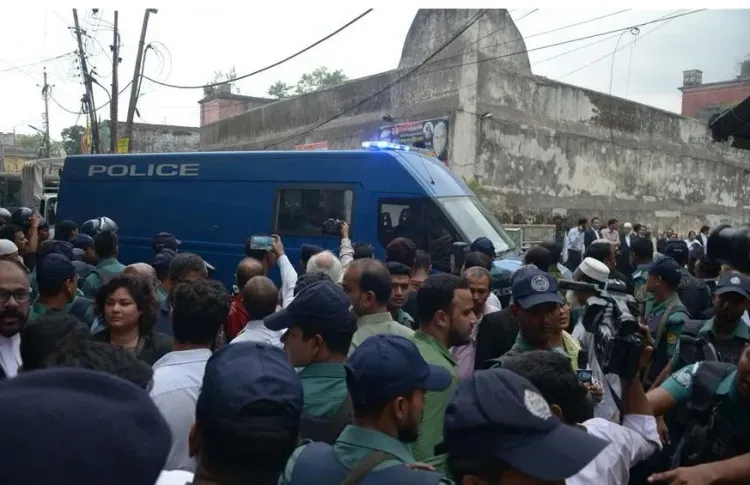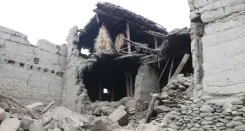Did the Bangladesh court really uphold the acquittal of the accused in the 2004 grenade attack?

Synopsis
Key Takeaways
- 2004 grenade attack remains a pivotal moment in Bangladesh's political history.
- 49 individuals acquitted, including prominent political leaders.
- Significant public outrage followed the High Court's decision.
- Awami League claims the attack aimed at undermining democracy.
- Over 500 people sustained injuries, with many still suffering.
Dhaka, Sep 4 (NationPress) A court in Bangladesh has confirmed the High Court's decision to acquit all 49 individuals implicated in the August 2004 grenade attack case, which includes Bangladesh Nationalist Party (BNP) Acting Chairman Tarique Rahman and former state minister Lutfozzaman Babar, according to local media sources.
This attack, resulting in numerous fatalities and injuries, stands as one of the most catastrophic instances of political violence in the nation’s history.
The ruling was delivered by the six-member bench of the Appellate Division of the Supreme Court, headed by Chief Justice Syed Refaat Ahmed, which dismissed the state’s appeal contesting the 2024 High Court verdict.
The grenade assault on August 21, 2004, occurred amidst the coalition government of the BNP and the extremist party Jamaat-e-Islami, targeting an Awami League rally led by then-opposition leader Sheikh Hasina at Bangabandhu Avenue in Dhaka.
In December 2024, the High Court acquitted all 49 defendants, reversing previous convictions and sentences from the trial court.
This December verdict incited widespread outrage on social media, with many expressing disbelief over the exoneration of all accused, as reported by Bangladesh's leading daily, bdnews24.
In 2018, the trial court had sentenced 19 individuals, including Babar, to death, while Tarique and 18 others were sentenced to life in prison.
Furthermore, eleven members of the police and armed forces received varied prison sentences.
The Awami League asserts that the attack was planned under the direction of Tarique, the son of former Prime Minister and BNP Chairperson Khaleda Zia, alongside war criminals and leaders of Jamaat, including Matiur Rahman Nizami and Ali Ahsan Mohammad Mujahid, as well as other anti-Liberation factions.
The party contends that military-grade grenades were used to attack its rally, resulting in the deaths of 24 Awami League leaders and activists, with over 500 others permanently disabled.
They allege that the intent was to assassinate Awami League President Hasina and to undermine Bangladesh’s independence, democracy, and the essence of the 1971 Liberation War.
The Awami League highlighted that over 500 leaders, activists, and journalists from both print and electronic media suffered injuries due to grenade shrapnel, with many still facing significant challenges from their wounds.







